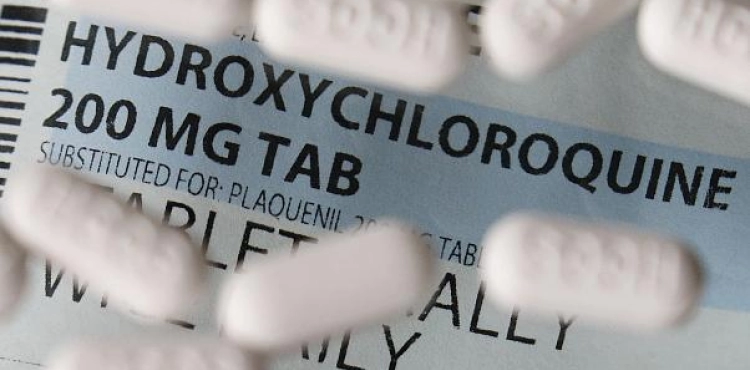France decided on Wednesday to ban the use of hydroxychloroquine in treating Covid-19 patients, after months of controversy over its effectiveness, and published a study indicating its risks.
"This combination should not be prescribed to patients with Covid-19 epidemic, either in their homes or in the hospital," the French Health Ministry said in a statement after the publication of a decree on the prevention of the drug in the Official Gazette.
The decree eliminates the possibility of prescribing hydroxychloroquine for treatment outside clinical trials, and comes after a negative evaluation of the Supreme Council of Public Health in France.
On Tuesday, after seeking government advice, the council recommended "not to use hydroxychloroquine in the treatment of Covid-19 patients" outside of clinical trials, either alone or with an antibiotic.
Since the end of March, this drug could have been exceptionally prescribed in hospital for critically ill patients, based on a decision by the Board of Doctors.
It was originally forbidden to describe the drug sold in France as "Plaquenil" for the treatment of patients with coronavirus emerging outside hospitals.
The decree, published in the Official Gazette, extracts the conclusions from the opinion of the Supreme Council of Public Health, after Minister of Health Olivier Ferrand requested his opinion on the matter, according to what the ministry explains, noting that "France witnessed health tragedies linked to the misuse of some drugs."
A study published last week in the medical journal "The Lancet" indicated the inefficiency of hydroxy chloroquine and the dangers of this drug to people with COFED-19, which revived the controversy in France about it, and prompted the government to refer the case to the Supreme Council of Public Health.
That same study prompted the World Health Organization to suspend the clinical trials of the drug in several countries.
The French Medicines Agency announced on Tuesday that it will make a similar decision regarding the experiments in France.
Hydroxy-chloroquine gained unprecedented global attention in late February after French Professor Didier Rawault of the University Hospital Hospital (EHMo Mediterane) in Marseille, based on an unspecified Chinese study, said that chloroquine phosphate showed positive signs in treating Covid-19 patients. .
Global interest in this drug has increased after US President Donald Trump defended him, to the point of announcing that he was taking it as a precaution, before Sunday stating that it had stopped.
The drug is also defended by Brazilian President Jair Bolsonar, who is convinced of its positive effects, although it has not been proven, to the point that the Brazilian Ministry of Health has recommended that it be used to treat all epidemic patients, even those with mild symptoms.
For his part, Professor Rawlett rejected the study, which was published in "The Lancet", considering it "bad".
Hydroxychloroquine is one of several treatments that have been tested since the outbreak began.
It is commonly prescribed to combat autoimmune diseases such as lupus and arthritis.
The decree, published in the Official Gazette on Wednesday, also prevents prescribing drugs that include lopinavir and ritonavir, originally used to treat retroviruses such as AIDS, for treating Covid-19 patients outside of clinical trials, with the drug agency indicating a risk of heart attacks. This medicine is sold in France under the name "Calitra".
So far, the Covid-19 epidemic has killed more than 28,500 people in France.












